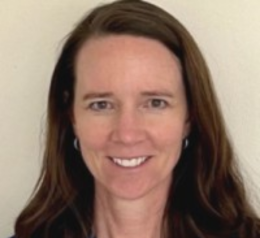E K Wills
SJOG Burwood, Australia
Title: Innovating Burnout Recovery Pathways: A Clinician-Led, Private Hospital-Linked Program for Sustainable Work-Life Balance
Biography
Dr E. Kate Wills is part of the
new wave of post graduate psychiatrists with previous life experience and a
focus on holistic care and wellbeing. Areas of special interests focus on
neurodiversity, trauma, and occupational (or workplace) mental health. Her work
is informed by her previous studies in Business, education and teaching
Business English abroad, in addition to work in the Film Industry as the Head
of Department in design.
Abstract
Introduction: Occupational burnout is a significant mental health challenge in
Australia, with 61% of individuals reporting symptoms, substantially higher
than the 48% global average. Despite increasing demand, particularly among
those in helping professions, access to structured recovery programs remains
limited. This abstract introduces a novel, clinician-led program designed to
address this service gap.
Methods:
Conceptualised for individuals experiencing work-related stress or burnout as
an Adjustment Disorder, the program offers two delivery modalities to enhance
accessibility: a 12-week, half day, group-based, in-person course
("Building Emotional Wellbeing for Burnout") linked to a private
hospital outpatient service, and a self-paced, online alternative ("The
Burnout Rescue Kit"). Both pathways integrate evidence-based cognitive
behavioural strategies, legal-psychological safety frameworks, and goal-focused
recovery planning to support a structured return to function.
Results & Conclusion:
This dual-format design facilitates broad access and flexible engagement,
proving particularly beneficial for individuals on income protection or
WorkCover. Preliminary feedback from general practitioners, psychiatrists, and
clients indicates high acceptability, with functional recovery being a key
noted benefit. As the first private hospital-associated, clinician-led burnout
course of its kind in Australia, it presents an evidence-informed, scalable
model to address systemic burnout, holding particular relevance for workers in
the healthcare sector, non-paid carers and those with significant life
stressors or changes in phases of life.
 27-29 Oct 2025
27-29 Oct 2025  Bali, Indonesia
Bali, Indonesia  27-29 Oct 2025
27-29 Oct 2025  Bali, Indonesia
Bali, Indonesia 